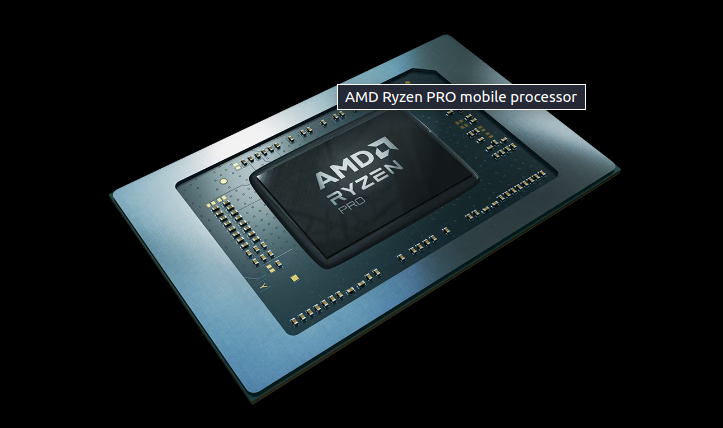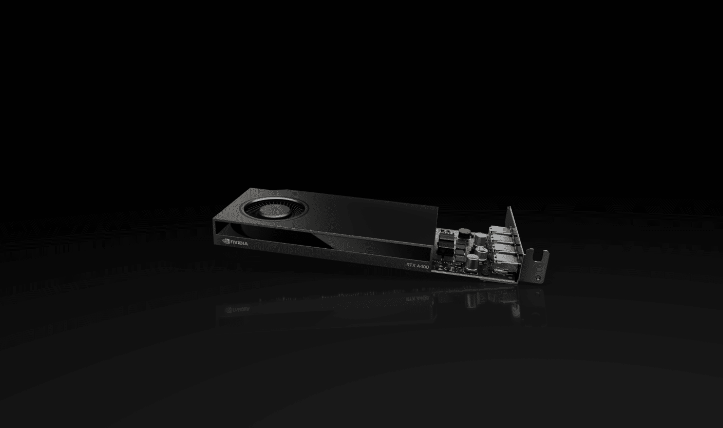 INFRA
INFRA
 INFRA
INFRA
 INFRA
INFRA
Computer chipmakers Advanced Micro Devices Inc. and Nvidia Corp. are stepping up their game amid a growing frenzy for so-called AI personal computers, which are a new generation of PC that can run artificial intelligence workloads on device.
In an announcement today, AMD unveiled a pair of new central processing units it said are optimized for AI PCs, in an effort to take on rivals such as Nvidia and Intel Corp., which both offer a range of silicon chips with embedded AI processing capabilities. Just hours later, Nvidia responded with the launch of two new graphics processing units in its RTX family of Ampere-based desktop GPUs.
AMD’s new Ryzen PRO 8040 Series processors are the “most advanced x86 processors built for business laptops and mobile workstations,” the company claimed. The slightly less powerful AMD Ryzen PRO 8000 Series chips are said to be the first “AI-enabled desktop processor for business users,” delivering “cutting-edge performance” and improved energy efficiency, the company said.
According to AMD, the new chips will extend its leadership in AI PCs. They leverage a combination of CPUs, GPUs and dedicated on-chip neural processing units or NPUs to provide dedicated AI processing power that’s said to exceed the company’s earlier generation Ryzen chips.
HP Inc. and Lenovo Group Ltd. will be among the first companies to offer a new lineup of PCs equipped with the Ryzen PRO 8040 and Ryzen PRO 8000 chips, while Microsoft Corp. plans to work with AMD to optimize the performance and security features of AMD Ryzen-powered Windows 11 desktops and mobile systems.

Image: AMD
AI PCs are personal computers equipped with processors that have been specifically built to perform AI processing tasks such as real-time language translation, chatbots and summarization on the device. They allow AI models to be ran directly on the PC, rather than sending requests to the cloud, which reduces latency.
AMD’s new chips will compete against similar silicon offerings sold by Intel and Nvidia. The three chipmakers have all talked up the prospect of AI PCs since the first such models were launched late last year, in the wake of growing interest in generative AI applications such as ChatGPT.
In February, AMD President Victor Peng told CNBC he believes the AI PC market will power new growth in a PC industry that had been in the doldrums for almost two years following the end of the COVID-19-inspired boom times. The global PC market has already rebound from that slump, with a report from International Data Corp. earlier this month showing that PC shipments increased by 1.5% in the first quarter of the year, driven by AI PC sales.
AMD’s sentiments were shared by Intel Chief Executive Pat Gelsinger, who told journalists at an event in New York last year that “the AI PC will be the star of the show for the upcoming year.”
Nvidia is also betting on the rise of the AI PC, with its new RTX A400 GPU announced today designed to accelerate ray tracing and AI workloads. The new GPU is said to be the latest addition to Nvidia’s RTX 400 Series GPUs, and contains 24 Tensor Cores for AI processing. The company reckons this enables it to surpass all existing CPUs when it comes to running “cutting-edge AI applications” such as AI-powered copilots and intelligent chatbots directly on device.
The RTX A400 is also designed to support real-time ray tracing for creators wanting to design more vivid and physically accurate 3D renderings.
Nvidia said the RTX A400 includes four display outputs, the most of any chip in the RTX A400 lineup, meaning it can support “high-density display environments” or the ability to connect a PC to up to four displays at once.

Image: Nvidia
The company also announced the new RTX A1000 GPU, which combines Tensor Cores with RT Cores to enhance AI performance even further. The A1000 comes with 72 Tensor Cores, which enable it to provide three-times faster AI processing for tools such as Stable Diffusion, and 18 RT Cores, which help to accelerate graphics and rendering tasks threefold, boosting workloads such as computer-aided design, product and architectural design and 4K video editing.
Additionally, Nvidia said, the A1000 excels in video processing tasks, encoding up to 38% more streams at once, while doubling video decoding performance compared to previous generation RTX GPUs.
Nvidia highlighted how industrial planners will be able to use the new RTX GPUs to run edge device deployments, while creators can produce richer visual content and architects and engineers will be able to transform their ideas into highly realistic and tangible designs. The high-density display environment capabilities will aid financial traders, who will be able to monitor up to four displays at once, and also have applications in the digital signage industry.
Nvidia is striving to maintain its dominance of the rapidly growing AI industry. The company is not only a powerful player in terms of silicon for AI PCs, but it’s the king of the data center, where most AI workloads are processed today.
CNBC cites a Bank of America report that suggests Nvidia is on track to capture more than 75% of the $90 billion AI accelerator market, with AMD and Intel expected to share around 15% to 20%. The remaining chips come from companies such as Amazon Web Services Inc., Microsoft Corp. and Google LLC, which offer their own, in-house processors for cloud-based AI workloads.
Support our mission to keep content open and free by engaging with theCUBE community. Join theCUBE’s Alumni Trust Network, where technology leaders connect, share intelligence and create opportunities.
Founded by tech visionaries John Furrier and Dave Vellante, SiliconANGLE Media has built a dynamic ecosystem of industry-leading digital media brands that reach 15+ million elite tech professionals. Our new proprietary theCUBE AI Video Cloud is breaking ground in audience interaction, leveraging theCUBEai.com neural network to help technology companies make data-driven decisions and stay at the forefront of industry conversations.